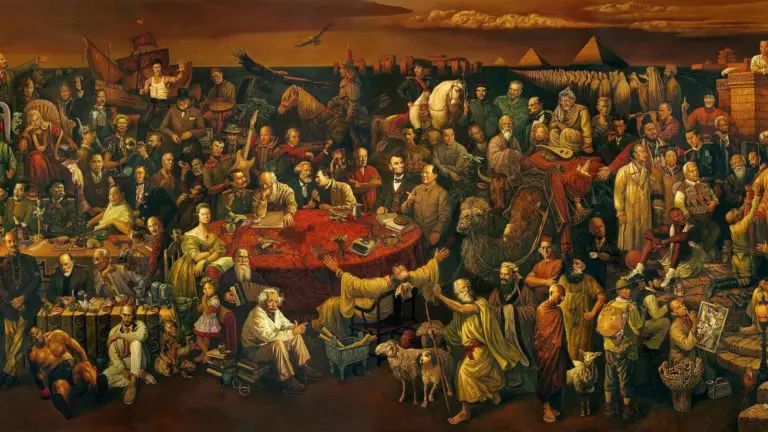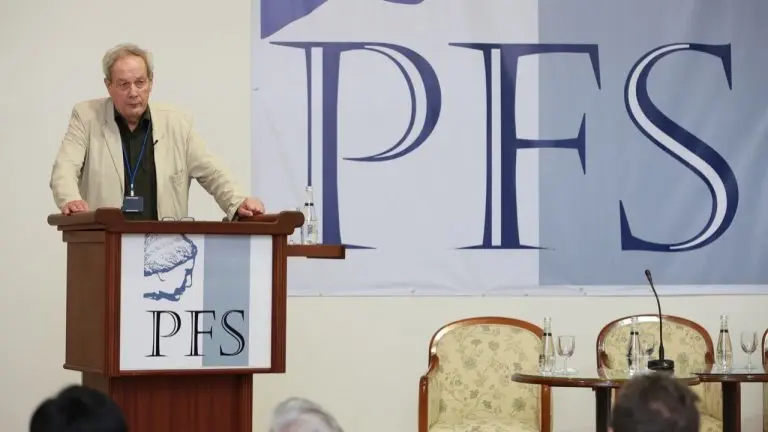COVID-19 has given rise to all manner of oddities and unlikely alliances. Many quite conservative people now find themselves in the same trench as Russell Brand, who has emerged as a surprising voice against lockdowns and novel mandates. And in the UK elderly Tories have spent the COVID era supporting a level of state control which would have seen them march—or at least hobble—on 10 Downing Street if it had been occupied by a Prime Minister Corbyn. Then we have the hypocrisy of the Leftist intelligentsia, which used to fight against educational inequality but has had nothing to say about the wrecked life prospects of poor children.
But perhaps the most difficult phenomenon to explain has been the enthusiasm for lockdowns, mask mandates and vaccine passports among many libertarians, especially in the Conservative Party and in esteemed neo-liberal thinktanks. These are the people who never tire of fighting to legalise drugs or campaign against policy measures to reduce the misery caused by gambling. Yet, many have been happy to give up the most basic freedoms for questionable public health benefits.
Even the game-changing arrival of vaccines, presented to us as our way out of the COVID nightmare, is now promoted as a reason to expand—rather than rein in—the bio-security state. All over Europe, government-issued ‘freedom’ passports, conditional upon receiving the jab, are radically altering the relationship between the individual and the state, treating adults like children while causing deep social division and slowing economic recovery. Never has libertarianism, a notoriously loud creed, been so hushed in its concern for liberty.
The real problem is that many libertarians are basically technocrats. On the whole, they tend to believe the most efficient thing for governments to do is to get out of the way. This makes them useful allies against arbitrary seizures of property, excessive red tape and various other forms of malice or stupidity. Nevertheless, their tendency as technocrats is to reduce political life to a debate about utility. For libertarians, policy questions turn on whether it is more practical for governments to leave society to itself or to exercise force, depending on the issue at stake.
But how to decide between the two? Libertarians typically seek guidance from John Stuart Mill, the celebrated sage of Victorian liberalism. Mill’s famous ‘harm principle,’ outlined in On Liberty, states that, “The only purpose for which power can be rightfully exercised over any member of a civilized community, against his will, is to prevent harm to others.” Whether or not freedoms are deemed harmful is made the focus of all policy. For libertarians, no less than for their socialist opponents, politics is a thoroughly utilitarian business, namely a matter of tallying up the perceived harms of allowing or banning certain kinds of action.
Recently, the British journalist Andrew Neil even cited Mill after being asked why, as a classical liberal, he favours vaccine passports. The fact that Millian logic can be invoked in support of such an authoritarian measure underlines the core problem with Mill’s harm principle: it is morally thin and philosophically vague.
Indeed, Mill’s principle tells us nothing about the moral limits of governmental coercion. For example, by executing all patients with COVID, we would be able to prevent any harm they are likely to cause by infecting and killing multiple others. The reason we would never consider such murderous action is not because practical calculation reveals the policy would not work. Rather, our disgust at the proposal stems from a deeper moral value than Mill’s focus on minimising harm. The real story of the COVID era has been the sheer number of such moral values like freedom of speech and association which, while less vital than the right to life, societies have thrown out as part of their failed efforts to prevent harm from the virus.

It is here that the vagueness of Mill’s harm principle becomes important. One of the defining changes over the last century has been the dramatic rise in risk-aversion across developed societies. It is not surprising that our definition of ‘harm,’ apparently so obvious to Mill, has expanded as the modern appetite for risk has fallen.
The Victorians lived in a world far more plagued by epidemic disease than our own. Yet it would never have occurred to Mill to propose a medical autocracy—one tasked with denying freedom to ‘unclean’ citizens as the answer to a danger as mild as COVID. (Smallpox was a different matter.) That is because Mill would have been outraged by such a controlling regime, even if it could be shown to work. Two years of panic, however, have been enough to normalise the idea of a mighty, all-caring state. Our natural resistance to mass control having been weakened, all that remains is the abstract libertarian logic of preventing harm, which in a society as averse to danger as ours practically amounts to eliminating all risk.
Indeed, the meaning of ‘harm’ has been so warped that fully vaccinated people, though less likely to die of COVID than they ever will be, are now told to view going to a restaurant with their unjabbed friends as a severe biohazard. By this measure, just about anything can be classified as an intolerable danger and thus a matter for the police. The fact that this wild definition of ‘harm’ is being used to rob us not of trivial things but of our most basic liberties, including freedom of association and bodily integrity, should be a cause for alarm for all of us—but it’s not, and that’s the really worrying thing.
Those who support the ongoing restrictions do not, in any case, have a solid utilitarian case for doing so. As I have argued elsewhere, there is a strong practical case against the new bio-security state—a case aptly made by the many experts who question the utility of lockdowns, masks and vaccine passports.
But the truth is that societies are defined more by their moral norms than by their practical efficiency. The leaders of communist China have always boasted about the achievements of their political regime, but that does not make this regime any less sinister. In fact, we move closer to the CCP model of ‘responsive authoritarianism’ when we allow the cult of utility to erode our political values, freedom being chief among them. There will be moments when practical concerns are so existential that they trump the near-sacred value of liberty: clearly, there was no absolute right to have a floodlit street party during the Blitz. But COVID can no longer be classified as an existential threat. In a Europe with vaccines for anyone who wants one, the case for mass social control no longer makes even practical sense, if it ever did. It certainly fails to pass moral scrutiny.
Even if we could build the ideal panopticon, a society emptied of personal freedom but run with purring efficiency by all-knowing technocrats, would any of us want to live in it? Most Utilitarians, regarding practical ‘harm’ as the dividing line between freedom and coercion, would be obliged to say ‘Yes.’ But conservatives recognize that human beings are not the manageable caricatures of utilitarian theory, but social creatures of habit who function in relation to their strong attachments. We are jealous guards of our bodily integrity and we are naturally driven to associate with others, unmolested by an army of state-financed busybodies. The brave new world that our leaders seem keen to create might look impressive when modelled by a computer, but it is not a world fit for human beings.





